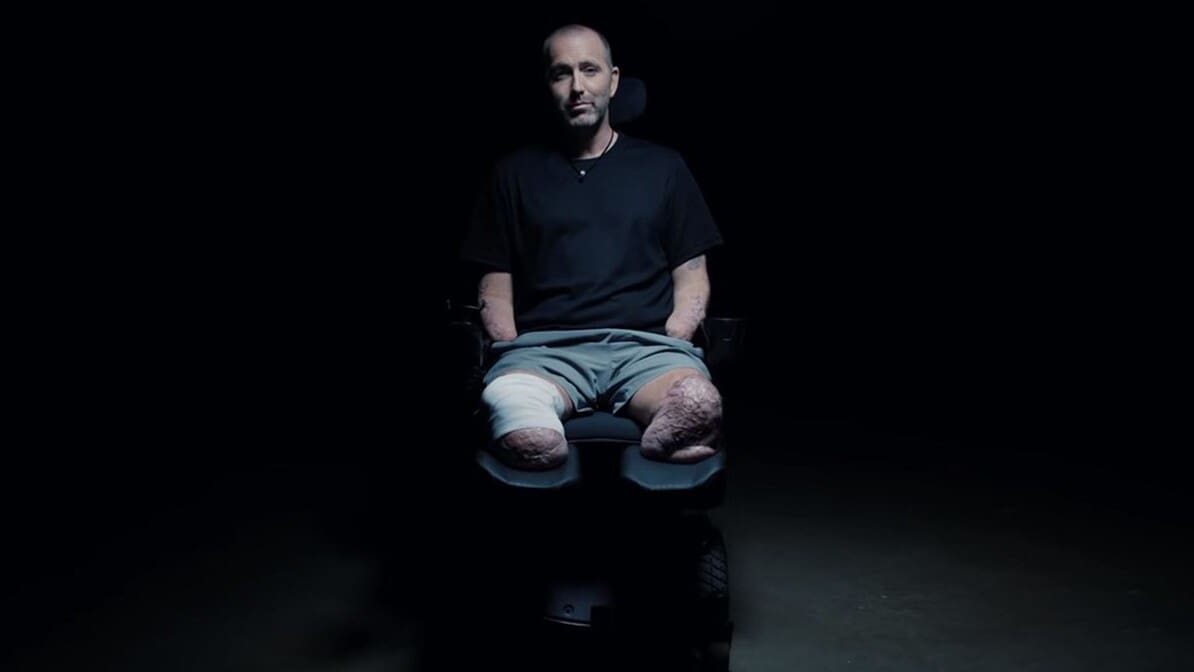
Beth Praed and the Hope That Comes with Disease (Part 1)
John Farrell: Could you please tell me a little bit about your book, So You Have a Disease?
Beth Praed: Yes, it’s called So You Have a Disease: Devotions and Stories to Restore Hope. I think the second part of the title is really what it’s about. It’s basically some incredible stories to help restore hope.
I talk about different issues and looking at the table of contents, there are things like, “Why Me, Lord?” That was what I asked all the time. “Why did this happen to me? How could you let me get this terrible disease? Why me?”
There are other questions too in this book that have to do with this same problem. There’s another chapter called, “Our Fear of Death.” There’s an incredible story called “A Blind Man’s Trust,” which I can tell you about. “My Lack of Faith” is another chapter. There have been times when my faith would waver. Even though I consider myself somewhat of a good Christian, there are times when I doubt.
I also have in this book a near-death experience I had when I was 10 years old, and it was acknowledged by the hospital. I know they brought in ministers, a pair of priests, and a couple of nuns to hear about what happened to me. I know they knew that something happened to me, but my mother, who believed me, told me not to tell anyone. I think she didn’t want attention to be brought to a child, which I understand. She was more about safety for me at the time.
JF: What was your inspiration for writing the book?
Beth: I had been working on a book about disease because I knew the difficulties that I experienced in dealing with the disease. I thought that I could write a book that was helpful, a devotional about disease.
I had written for quite a while and then I got some bad news from my neurologist. She’s very blunt with me, which I actually prefer. She told me that she had done everything that she could to try and keep the disease from progressing. I saw the MRIs and they did not look very good at all. They looked terrible. She said, “Eventually this MS is going to be the death of you. It’s going to kill you.”
I was upset. I was so upset that I quit writing the book. I bagged it. I set it on a shelf. I said, “I’m not going to finish writing this.” I was too mad at God. I was mad at Him. So, for a year and a half, I didn’t write a single sentence. And then I had a dream.
The Dream That Begot a Book
JF: It’s about your funeral, right? Can you talk a little about that?
Beth: Sure. First of all, having a dream about your funeral is not a normal dream that people have every day. So, it got my attention. In the funeral, I could see my body lying there in the casket, and I could see people milling around, people I knew. Then I could see people sit down.
The dream minister started speaking, and he mentioned my first book. My first book on MS was the top-selling book on MS for six years on Amazon. That is true. It was written under my name, Beth Ann Hill, and that was very successful. God gave me that book in a series of dreams, too. I even wrote in the dedication, “To my sweet Savior, who gave me this book in a dream.” So, that was in this new dream about my funeral. The minister mentioned that, and that was true what he was saying. Then he said, “But the book for which she is best remembered is her devotional about disease.” And then I woke up. I said to myself, “Oh my gosh, this is this book that I had quit writing because I was too angry at God. If this is what I’m going to be remembered for and this is my legacy, I need to finish this book.” So, I finished writing and got the book published by Crosslink Publishing. And it’s now available. That’s the story behind that.
I know my boyfriend, who died a year ago, really believed my dreams. He once said to me, “If I’m ever going someplace on an airplane and you have a dream that my plane crashed, guess what I’d do? I would cancel the flight.” Which I laughed at, of course. He unfortunately died before the book was published, but I do believe that he knows.
JF: What is the overall message you hope people take from So You Have a Disease?
Beth: That there is hope. That’s why I put it in the second part of the title. That there is hope and that you’re not alone. I said in the book, “Surround yourself with kind people who can be helpful to you.” And I said God is here for you. He has always been here for you. He knew this would happen for you. So, I believe God knew that it would happen for me.
I believe that when I had that near-death experience, I was told that when I was sent back I would get a disease at some point that would be terrible and would probably be the death of me. The interesting thing about that is that my near-death experience happened when I was 10 and I’m 60 this year. That means I got an extra 50 years. I think my original death was destined or planned when I was 10. I strongly believe that. I think about it all the time as a matter of fact.
The Tale of a Reluctant Christian
JF: How has your faith and your relationship with God played a role in shaping this book?
Beth: Very much so. Although I will say I’m kind of a reluctant Christian at times. I have one story that I told called, “Air in the Tires,” where I didn’t want to do a Christian deed. It was a snowy, icy day and I was walking with a cane at that point and driving with hand controls on my vehicle.
I went into this gas station. There was the attendant and an elderly woman, which I shouldn’t even be saying elderly because I’m now elderly, but she wanted help putting air in the tires of her car. I wasn’t going to help because I wanted to get a cup of coffee and didn’t have time to help her put air in the tires of her car, get a cup of coffee, and get to my doctor’s appointment. I didn’t have time for all those things. I wasn’t going to help her, but God made sure that I helped her. Then I found out the real reason why she needed my help. God knew and He made sure I did help her.
JF: What was the real reason?
Beth: The real reason was where she was going. She was going to the funeral home. Her husband had died, and she needed to arrange the funeral. She was doing that all by herself. When I found that out, I said, “Oh my goodness.” I asked her if I could give her a hug, and she said, “Yes.” I gave her a great big hug. When I let her go, I said, “Well, now you know how to put air in the tires.” Because I had shown her. I said, “You’re going to be okay, dear.”
God made sure that I was there for her. If I had to do it over, what I would have added to it, I would have gotten her husband’s name and found out when the funeral was. Not just let it end there.
…
Order your copy of So You Have a Disease: Devotions and Stories to Restore Hope by Beth Praed
Trending Now
Sign up today for your Inspiration Today Daily Newsletter
Supercharge your faith and ignite your spirit. Find hope in God’s word. Receive your Inspiration Today newsletter now!
John Farrell
John Farrell serves as the Digital Content Manager at Inspiration Ministries, where he oversees the planning, organization, and management of website content to support the ministry's global digital outreach. With a strong background in writing and editorial strategy, John ensures that the articles, devotionals, and discipleship resources on Inspiration.org are accurate, engaging, and aligned with the ministry's mission.
John has authored more than 1,000 articles, press releases, and features for Inspiration Ministries, NASCAR, Lionel, and Speed Digital. His versatility as a writer is also showcased in his 2012 book, The Official NASCAR Trivia Book: With 1,001 Facts and Questions to Test Your Racing Knowledge.
A graduate of Appalachian State University, John brings excellence and attention to detail to the digital experience at Inspiration Ministries. He lives in Concord, N.C., with his wife and two sons.
Related Articles
January 28, 2026
I Just Knew It Was God: From Searching to Finding Faith
From the outside, Ekaterina’s life looked successful. She had a college degree, a strong career,…
January 26, 2026
How to Overcome Old Wounds with Resilience
How Do You Deal with Old Wounds? Everyone is talking about trauma, but very few are talking about…
November 21, 2025
Thank You … Lord
Gratitude transforms our lives and draws us closer to God. This article explores how practicing…
October 27, 2025
So, Is God Good?
Many people wrestle with the question, is God good, especially when life brings pain and loss.…
Next Steps To Strengthen Your Walk
Inspiration Today Newsletter
Supercharge your faith and ignite your spirit. Find hope in God’s word. Receive your Inspiration Today newsletter now!
Christian Articles
Find articles to strengthen your walk and grow your faith. We have a wide range of topics and authors for you.
Submit A Prayer Request
We are here for you. Simply click on the button below to reach us by form, email or phone. Together we will lift our hearts and voices with you in prayer.





